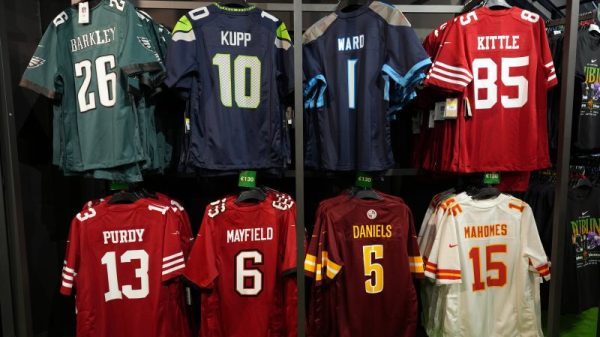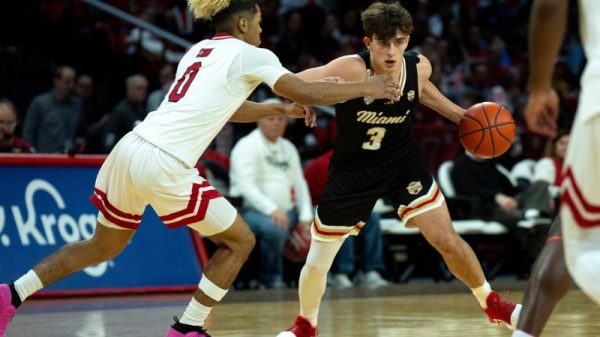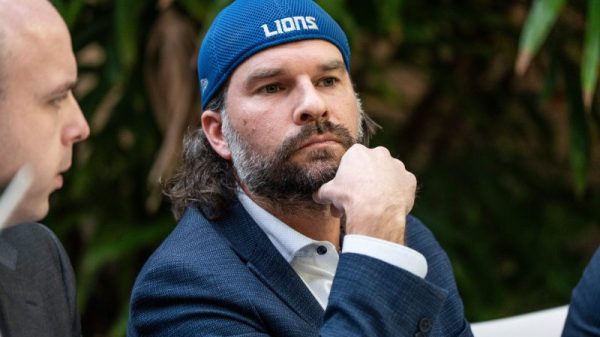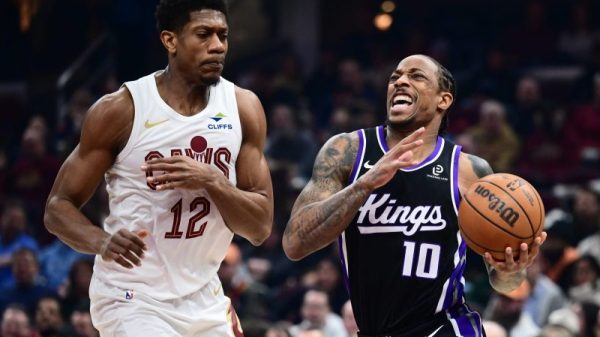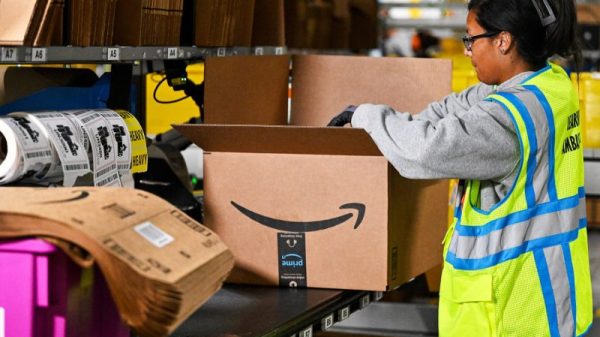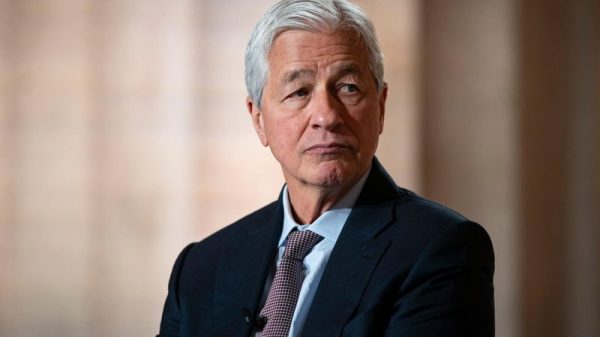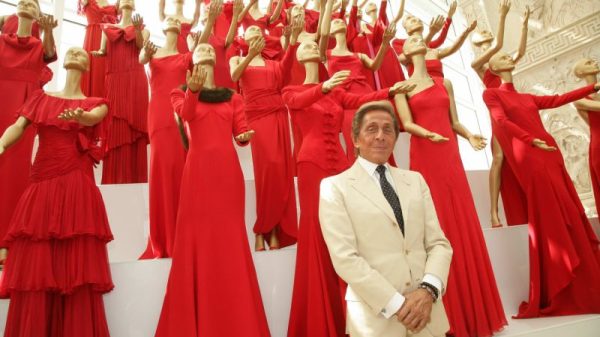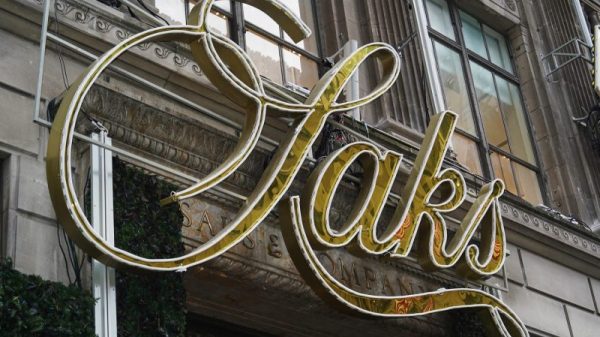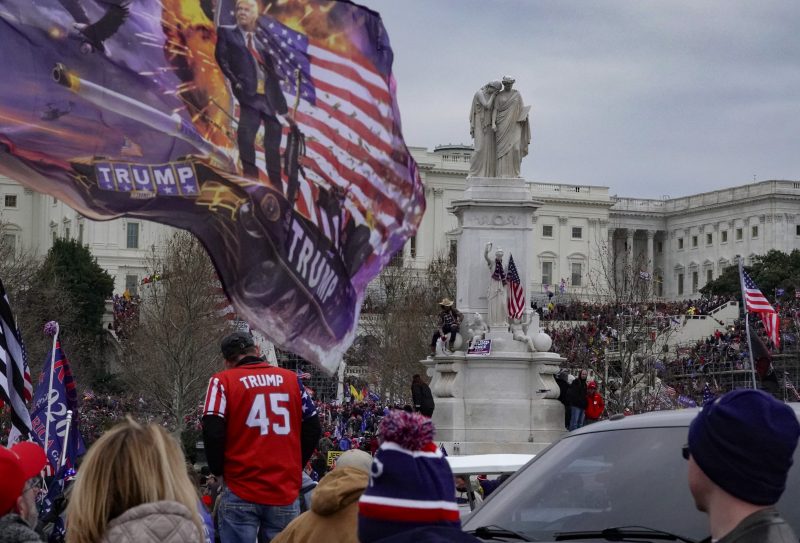Leaders in the far-right Proud Boys group, accused in federal court of plotting to use violence to keep Donald Trump in power, are asking the Justice Department to help them force the former president to testify.
“At all times relevant, Trump was president of the United States, and it’s the government’s obligation to produce him,” attorney Norm Pattis said in court Thursday. His client, Joseph Biggs, is one of five defendants accused of engaging in a seditious conspiracy to attack the U.S. Capitol on Jan. 6, 2021.
Pattis did not explain what defendants hope to learn from Trump, only that he was joined in the subpoena effort by attorneys for co-defendant Dominic Pezzola. He said he needed help from the government to serve a subpoena on Trump because the U.S. Secret Service continues to protect the former president.
In opening statements last month, an attorney for longtime Proud Boys Chairman Henry “Enrique” Tarrio argued that the former president was the one responsible for the deadly riot.
Representatives for Trump did not immediately respond to a request for comment Thursday.
What to know about the Proud Boys sedition trial
End of carousel
In a debate with presidential candidate Joe Biden in September 2020, Trump told the Proud Boys to “stand back and stand by.” In an encrypted chat from after the election, produced in court, Tarrio told a top deputy that the Trump campaign wanted them to keep showing up at rallies but not wear “colors” identifying themselves as Proud Boys.
“President Trump told these people that the election was stolen,” defense attorney Sabino Jauregui told jurors. “Trump told them to go there on January 6th, and it was Trump who in his speech on January 6th unleashed that mob over there at the Capitol.”
The former president wasn’t on trial, Jauregui said, because “it’s too hard to blame Trump, it’s too hard to put him on the witness stand with his army of lawyers.”
The subpoena effort is almost certain to fail. Duke University law professor Lisa Kern Griffin, who studies constitutional criminal procedure, noted that the defendants face multiple obstacles to putting Trump on the stand.
“We’re not going to be seeing testimony from the former president,” Griffin said.
Judge Timothy J. Kelly would have to rule Trump’s testimony admissible at trial. Judge Reggie B. Walton, in a different Jan. 6 criminal case in which the defendant sought to put Trump on the stand, ruled last year that the former president’s intent was “irrelevant” to how an individual supporter responded.
“The probative value of such testimony is substantially outweighed by the danger of confusing the issues and misleading the jury,” Walton wrote.
Unlike most other Jan. 6 defendants, the Proud Boys did have connections to people close to Trump. But they would still have to explain to the court “why they believe there are potential pieces of information that could emerge from the presidential testimony that would make a difference to their case,” Griffin said. “That seems to me far-fetched.”
Should Kelly allow the testimony, itself unlikely, Trump could claim executive privilege over any conversations he had while president. If that failed, Trump could assert his Fifth Amendment right to avoid self-incrimination, given that he is also under investigation for his actions around Jan. 6.
When Trump was subpoenaed last year by lawmakers investigating the Jan. 6 attack, he fought the demand on separation of powers grounds; it was dropped when the House special committee disbanded after Democrats lost their House majority. Special counsel Robert S. Mueller III decided not to subpoena Trump in his investigation of Russian interference in the 2016 election, instead accepting documents and written responses from the president.
Other federal judges in Washington have ruled that defendants could not defend themselves by arguing that Trump authorized their actions on Jan. 6.
That “would require this Court to accept that the President may prospectively shield whomever he pleases from prosecution simply by advising them that their conduct is lawful,” Chief Judge Beryl A. Howell ruled in one case.






